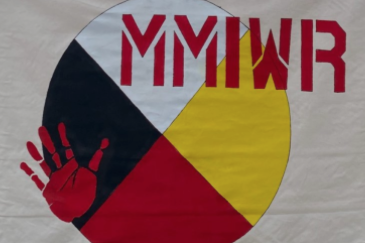
On May 2, the City of Fresno will present a proclamation addressing the historical and ongoing epidemic of violence perpetrated against Indigenous people. This proclamation is a resolution recognizing May 5 as the National Day of Awareness for Missing and Murdered Indigenous Women and Relatives (MMIWR).
The city of Fresno occupies the traditional territories of the Yokut people, who stewarded these lands since time immemorial.
Across Native American life ways, there is a deep understanding of the sacredness of life. This understanding transfers through the stewardship of the land and the respect that is displayed among the community, particularly to life-givers.
The Indigenous peoples of California have experienced three waves of colonization: the Spanish missionization, the California Gold Rush and the implementation of California statehood. Each wave used violence as a tool to commit genocide against the Indigenous people, the consequence of which has resulted in the epidemic of the MMIWR.
A 2016 study by the National Institute of Justice (NIJ) suggests that 84.3% of American Indian/Alaskan Native women have experienced violence in their lifetime, an estimated 1.5 million American Indian and Alaska Native women. In addition, Indigenous women experience murder rates as high as 10 times the national average.
The same study indicated that an estimated 81% of American Indian/Alaskan Native men have experienced violence. 2Spirit relatives (LGBTQ2S+) experience violence at a rate as high as 85%.
While these statistics indicate alarmingly high rates of violence experienced by Indigenous women and relatives, many such incidences of violence and cases of MMIWR are severely underreported and do not reflect the extent of the ongoing epidemic.
May 5 is used nationally for the MMIWR in honor of an Indigenous woman named Hanna Harris, who was a member of the Northern Cheyenne Tribe. Born May 5, 1992, Harris went missing in Lame Deer, Mont., on July 4, 2013, at the age of 21 and was found murdered on July 8, 2013.
On May 5, 2022, Harris’s 30th birthday, President Biden proclaimed May 5 the National Day of Awareness for Missing and Murdered Indigenous Women.
While Harris’s story has impacted the visibility of the MMIWR movement, her story is one of many heartbreaking stories that involve inadequate response and handling by law enforcement agencies and the disregard for Indigenous life. Based on accounts of the MMIWR locally, we find the narrative of inadequate responses by local law enforcement agencies to be consistent.
Bessie Walker was a 27-year-old Native American woman who lived on the Big Sandy Rancheria of Mono Indians. To those who knew and loved her, she was described as a beautiful person: kind, loving, someone who children gravitated toward and found comfort in.
Walker was able to connect with others due to her non-judgmental nature and background of overcoming adversity. She was a great mother and cherished relative who would do anything for her family.
Walker was last seen on Aug. 4, 2021, in Auberry on the Big Sandy Rancheria of Mono Indians and reported missing on Aug. 8, 2021. Her family made pleas to local law enforcement agencies to adequately search for the whereabouts of Walker but received little support from the Fresno County Sheriff’s Office.
On Aug. 21, 2021, a search party organized by Walker’s family and friends found the body of a woman who they believed to be Walker, and that fear would later be confirmed. Despite the determination of Walker’s death being ruled a murder, there was still a lack of urgency on behalf of the Sheriff’s Office to investigate and close the case.
Three years later, Walker’s case remains open, leaving her family and friends with no justice and no response from the county Sheriff’s Office when asking for updates. Rayetta, the sister of Bessie Walker, stated, “We just want answers.”
Undoubtedly, Native American peoples experience profound amounts of violence compared to their non-native counterparts. It is important that as a community we continue to fight for justice for the families of the MMIWR while simultaneously demanding that law enforcement and government agencies do their due diligence in acknowledging the ongoing epidemic and be a part of the change in ending violence against Indigenous people in a movement led by and for Indigenous peoples.
Nationally, there have been historic achievements in policy to support the MMIWR movement, including the Not Invisible Act (2019), Savanna’s Act (2020) and the BADGES Act (2022).
In Fresno County, the campaign to vote “No” on Measure B in the March 2024 Primary led to the successful and indefinite removal of a derogatory word rooted in the dehumanization of American Indian women.
This triumph in replacing terms rooted in hate with names that show honor to the Indigenous peoples of the land aids in the journey of rehumanizing American Indian peoples, leading the way to ending violence against Indigenous women.
For more information and resources on the MMIWR, visit niwrc.org, in addition to supporting national and local action in your community.
